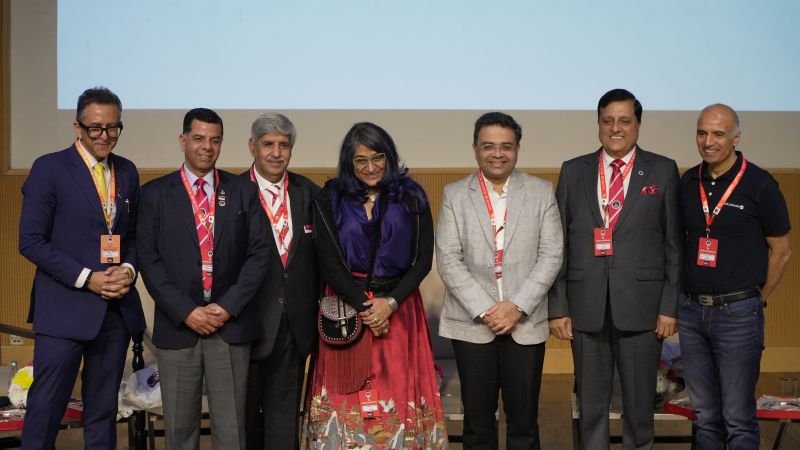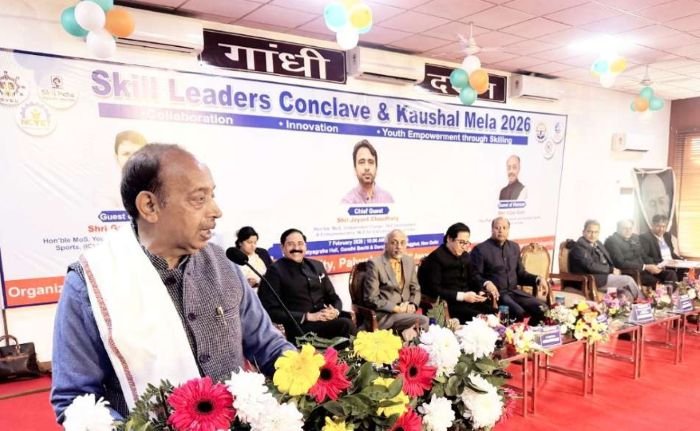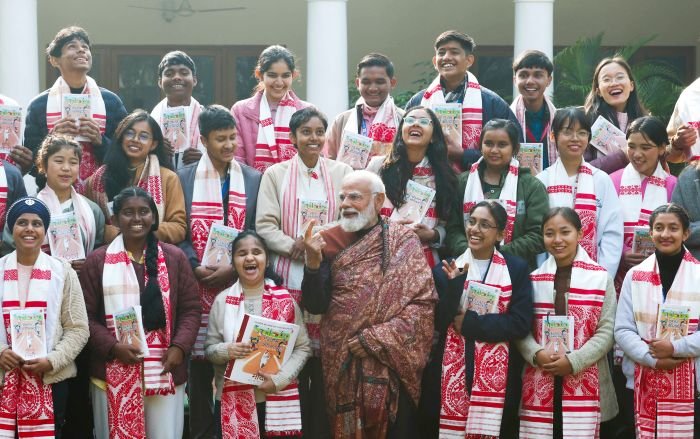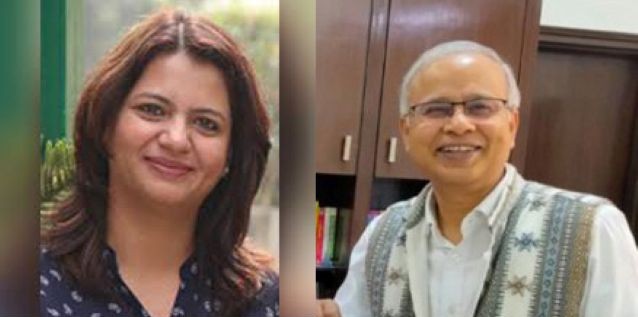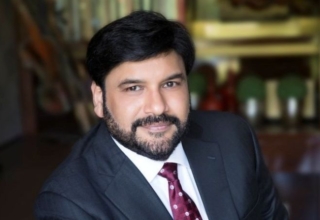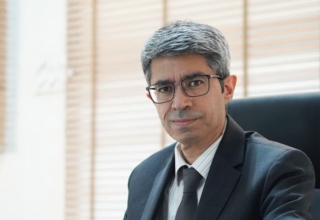
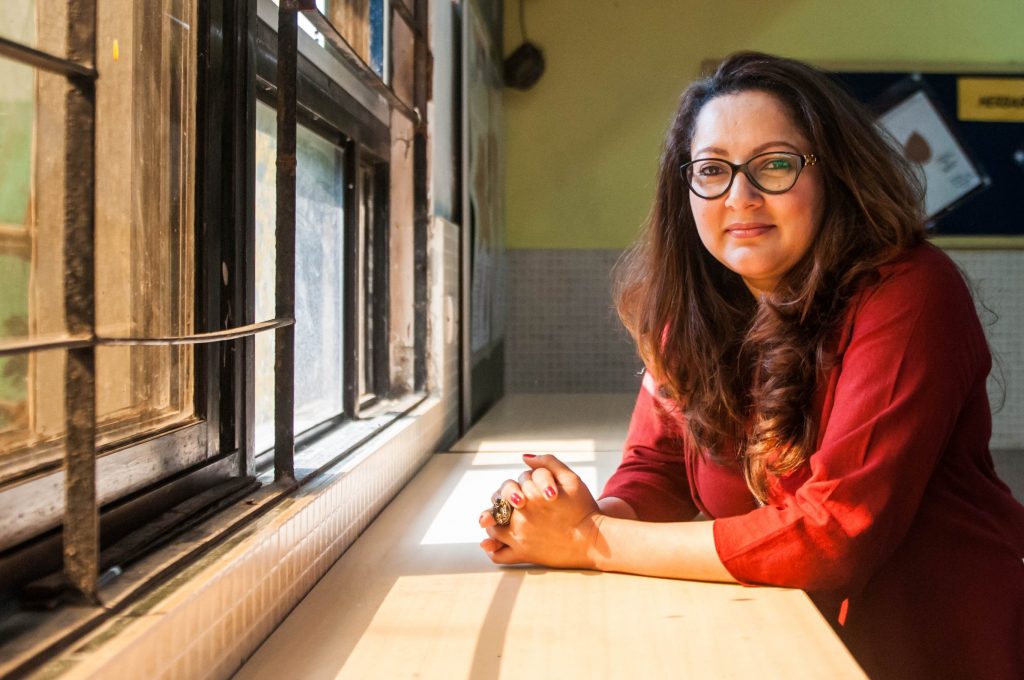
In the draft NEP, early education has been an area of big focus. Lina Ashar, founder promoter of Kangaroo Kids Education Ltd, which built popular brand of 79 Kangaroo kids, is a pioneer in the preschooling segment with almost four decades of active work. After her company was acquired by EuroKids International Pvt. Ltd in 2017-18, she is hopeful of her concepts and models getting more attention. Autar Nehru did an email interview with her.
You had created your brands (Kangaroo Kids and Billabong) with a lot of passion and belief for many years, and then you let once a competitor, Eurokids to acquire it. Why did you go for such a decision?
I never really think about life and my soul’s work in terms of ‘competition’. What I look for is creating the maximum impact that I can. In the current ‘brick and mortar’ scenario of learning I cannot create the transformational impact that I would like. It will always be a crawling sense of expansion, deterred by the needs of capital, real estate, quality teaching staff and all the other resources needed for this model. Also implementing such a brick and mortar school business model is not in my core area of strength or competency. Prajodh (Rajan, CEO) at Eurokids has built a great organisation in the physical (brick and mortar) education space. He has great competencies in building and driving process and system oriented businesses. He also has a fairly aligned value system to mine; keeping the interest of the child at the centre of the business. So the reasons are many but the key ones were as follows:
a) Eurokids is a mid market offering and adding Kangaroo Kids and Billabong High to their portfolio gives them a mid and premium segment brands to offer the market.
b) I don’t have a succession plan for my business and all leaders need to plan for the day they no longer can lead the business.
c) I took these brands as far as my skill set and competency would allow. Sometimes founders need to know when it is time to move out of the way.
d) This model would not allow me the transformation I would like to bring to education. One in which education is truly a great social leveller allowing children access to the same quality of education regardless of whether they live in a remote rural area of India or in Mumbai.
e) Technology based education is the only way we can truly personalise education.
Going back to your personal journey, you were the one who almost disrupted the curriculum and pedagogy with a new concept. But still, you found it hard to spread it early on?
Man is hard wired for scarcity and this was as true today as it was when I developed a new age concept in learning. Parents feel safer to stay with the familiar no matter how illogical it is. It is only an acutely
As a society we are quick to embrace development in every area of our existence….. except in our schools. We have embraced Netflix as a source of entertainment, Uber as a source of travel, Paytm as a source of moving around cash, FB as a source of social interaction. Yet we look at technology being embraced by schools with suspicion. Looking at technology with suspicion is similar to looking at a lighter with suspicion and preferring to rub two sticks together in an attempt to light a fire.
What I would like us to be mindful of is this resistance to modernising education is nothing new. Each generation has reimagined the dangerous impact of evolving technology on the mind and brain. While we have evolved our technologies we have not evolved our approach to embracing them in our schools. Every development has been met with fear and suspicion.
Between an educationist embedded in cross cultural values and an edupreneur who had to face a hostile system, how do you read your journey all these years?
I have stayed simple and innocent in my thought process. This is what my Australian upbringing taught me. I have also kept my life uncomplicated in a country like India that has millions of shades of grey. My key lesson learned in life is: “Change the way you look at things and be the change. The difference between a stumbling block and a stepping stone is in your perception of it. Events spearheaded by a corrupt businessman in July 2006 put me back considerably in my career and has been my toughest professional and personal challenge. A personal challenge because my work is more personally driven than a professional call of duty. I left my home and family in Australia to drive a new vision in education that was not financially motivated but a cause of the heart. Therefore anything that impacts this vision affects me professionally and personally. After this period of my life, I don’t use the word failure; I only use the word challenge as I truly feel all challenges are placed before us as teaching tools and are to be viewed as a learning opportunity. The greatest learning occurs if we view the challenges positively and work out how to draw the learning from them and how to rise over them to the next level. I know I would never have had the guts to build my own schools, so I see the ‘adversity’ as the opportunity to somehow have the guts to do so. Sometimes it is only when we are pushed into a corner with our backs against the wall that somehow we summon the strength and courage to rise to another level. Paulo Coehlo’s book ‘The Alchemist’ has a powerful phrase that I live by “It’s a force that appears to be negative, but actually shows you how to realize your destiny. It prepares your spirit and will…”
Tell us something about naming of your brands as Kangaroo and Billabong?
The Kangaroo is an animal that nurtures its young for a very long time, much like a human mother. I had a list of 10 potential names and asked my target audience (4-6 yearolds) which one resonated the most and they picked Kangaroo Kids without fail. Billabong is an aboriginal word that means ‘spiritual body of water’ and seems so apt since water is essential to life and growth.
Now coming to policy environment, you are a pioneer in early education in India, how satisfied are you with the progress the country has made in this important segment of foundational education?
On a scale of 0-10 with 10 being extremely happy, I would say that we are still at a 1. This 1 is also attributed to the fact that finally we are aware of what we don’t have and what we don’t know.
That is an important statement. Can you illustrate on awareness? What kind of awarneness are you talking about??
Education has seen a major shift in the last 15 years. Historically parents sent their children to aided schools, where the school fees were minimal and girls received free education. The teacher child ratio was 1:50 (or even more) and these schools were deploying a curriculum that was developed by government appointed universities which was not updated thereafter. With large classroom numbers the schools could only follow a rote method of learning where the child did not necessarily understand the concept taught but was able to regurgitate it orally and on paper.
Parents were at the begging end for school seats willing to go through interviews and pay hefty under the table donations. Most historical schools got land from the government at subsidised rates and these rates haven’t been revised till date. Another aspect that needs to be highlighted is that many politicians run educational institutes, since these educational trusts have charitable objectives; they receive numerous government concessions and benefits, financial grants and tax waivers. The biggest of these are large tracts of land at throwaway prices on practically indefinite leases.
As aided schools were very less in number and the demand for schools was skewed a few enterprising edupreneurs (educationist entrepreneurs) like Prajodh and I stepped in to reinvent the educational space. At our heart level we know that education is not only about memorising information but rather a tool to define your success and hence we took the responsibility of bringing about a change. We introduced experiential learning for the holistic development of the child; we made sure that children got individual attention which means our teacher child ratios are 1:12 in some schools to 1:30 in others. We focused on the creation of spaces and activities that were inclusive and open across the range of a child’s capability.
We generated learning capsules that concentrate on education pedagogy, psychology, curriculum expertise, assessment and evaluation based on neuroscience. Education leadership is a process that requires great quality resources like curriculum experts, teaching faculty, infrastructure and facilities. All of this comes at a huge financial investment.
Today, there is no longer a lack of schools thanks to entrepreneurs like us. Now parents have a choice of schools with different price points, infrastructure, pedagogy and philosophy. However, parents and the Government are missing the forest for the trees! They are choking schools with continuous interference. On one hand you want to dictate to us reservation of seats and provision of books etc that we have to find funding to pay for. You want to enforce teacher pay commissions and you want to control our fees! Without taking into consideration that we pay commercial bank interest rates, commercial rentals for the schools we operate in, commercial electricity etcetc!
Right to Education may soon become a reality in preschooling going by draft NEP inputs?
We value the goal of the government to ensure that all the children of our country have a right to education; however the implementation at the cost of social adjustments for the children has not been taken into account.
The government needs to realise that creating blanket archaic unreasonable rules to control independent schools will only hamper in the smooth functioning of a school.
Only by encouraging investments and entrepreneurship in education does this country have a hope of increasing schools that focus on creativity, innovation and entrepreneurship.
There are loads of examples that I can quote, recently in the state of Gujarat the ‘Gujarat self financed schools bill 2017’ was announced. According to this bill the fees for primary education would be Rs. 15000/-, fees for secondary education would be Rs. 25000/- and the fees for higher secondary education would be Rs. 27000/- per annum. These rates won’t even cover my rental cost in Vadodara!
The catch: as per an article published by ABP live Gujarati on 11th April 2017 states that Minority schools are an exception to this new ruling. The article also states that a private school wanting to charge a higher fee would need to submit a report to the committee justifying the reason; this will just increase the scope of corruption. With the kind of facilities a private school provides this kind of fee structure will not even cover one fourth the cost of running the school. What choice will we have other than to go back on our framework and place 50+ students in a class?
Result of this ruling:
1. Schools will become stagnant and will have no motivation to improve, resulting in drop of school standards across the board.
2. Schools will incur losses and that being the case they will not look at expanding, they might consider shutting down their schools due to lack of good income and better utilization of school assets.
3. As a result, in the next 4-5 years we will go back 15 years where there will be no seats available and parents will be at the begging end. Most parents will also have to pay ‘under the table’ donations that won’t get factored into the fee control increasing corruption yet again.
4. The government has not preempted this situation and has no back-up plan for when entrepreneurs stop growing schools.
5. Children in the state of Gujarat will not have access to quality education even though parents can afford it.
6. Schools will hire low quality teachers and will also reduce most extra co-curricular activities. Thereby depriving children of all round development.
Another example is the Right to Education act of 2009. It requires all private schools (except the minority institutions) to reserve 25% of seats for the poor and other categories of children (to be reimbursed by the state as part of the public-private partnership plan).
Governments are seeing technology and tools as means of leapfrogging in teaching/learning and knowledge transaction. Do you feel without investing in teachers, such interventions can have desired impact?
I completely believe that technology will spearhead the way forward and we will have an abundance of true teachers. True teachers that no longer need subject based competency but only someone who is invested in the way the future unfolds and is passionate about kids.
We will see automatic exponential change as corporates are realising the current set of students coming out of schools and colleges with degrees don’t have the competencies needed to do their jobs. Increasingly corporates will do competency based hiring which will force the Boards and schools to change direction, not because they want to but because they will have no other choice in their quest for survival.
What are your expectations for early education from the soon to be announced new National Policy on Education?
In India I have given up having expectations. ‘Expect nothing and you will never be disappointed’. I do have hope however on being able to build a team and tackle this issue using technology to dematerialize education.
Lastly, what are some of things that you still want to do/achieve?
I want to create a heart-centered learning system that makes a positive impact in the world, generates an abundant income so that I can build it to reach all kids, and supports a life I truly love, which is one of continuous learning and creation.


